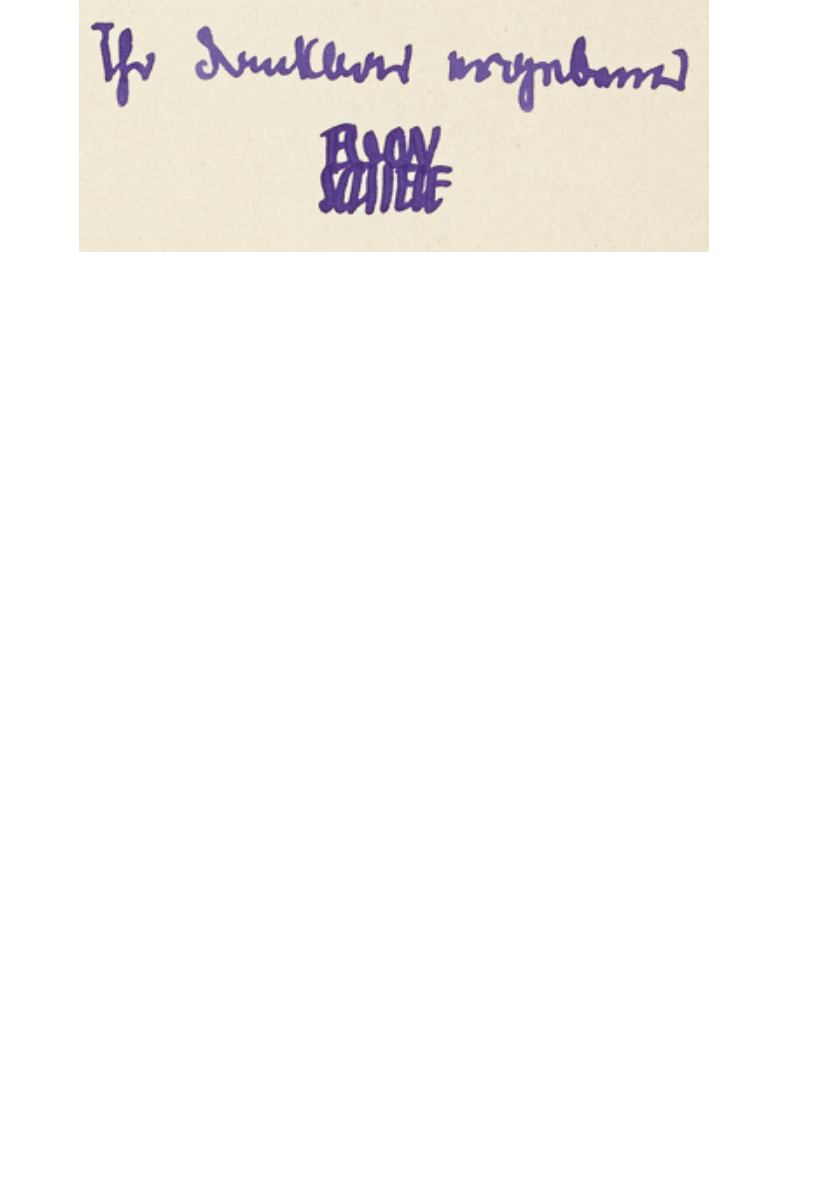

WEEKS BEFORE HIS
DEATH:APPALLEDBY
MILITARY’S INTEREFERENCE IN HIS ART
220
●
SCHIELE, EGON. Autograph Letter Signed, to Chief Engineer Dr. John, in
German, reminding him that he sent his painter brother-in-law, Anton Paschka, to show
him Paschka’s drawings, complaining that he had been ordered to appear a second time
within a month before a military inspection board, enclosing the note conveying the order
[present], noting that involvement with the military destroys his creative ability, listing his
creative obligations and plans, and pleading for his help. 4
1
/
2
pages, small 4to, written on
two folded sheets, personal stationery; horizontal fold.With the original envelope.
Vienna, 2 October 1918
[8,000/12,000]
“
After personally consulting with you, I took the liberty of sending my brother-in-law, the painter
Lieutenant Anton Paschka, who wanted to show you some drawings of his—perhaps there is one or
another among them that would interest you.
“
But the main purpose of my letter is something else, and I believe that you, as an ideal patron of the
arts, will pardon me if I do not come to see you about this in person, because in my role as One-Year
Volunteer Enlistee Corporal Schiele, Egon, I cannot presume to communicate all of it to you as well as
I can write it in my role as artist.Yesterday I received the enclosed blunt note in which I am told to
appear for a further inspection. In response I must inform you that I was already presented to an
inspection board on September 10, 1918, I, with the entire team at the Army Museum, and I don’t
see why I should be inspected again after less than one month. . . .There is nothing so depressing as to
be extolled as an artist from all sides and entrusted with responsibility and decision-making for what
are now the most important artistic issues in Austria, and then, because of other people’s mistakes, sud-
denly to be ordered, as a number, to appear again after only a few weeks before a board whose whims
severely inhibit the existence of a creative force . . . so that any new, free, intellectual or artistic concep-
tion is wiped out again.The executioner’s scaffold comes to mind.
“
Understandably, this feeling of being at someone else’s mercy weighs on me tremendously, and when
such circumstances are prolonged I cannot find delight in art, for which I have every capability; and
therefore, for these reasons, I don’t want to force myself to produce new works . . . .
“
Even the very air of the barracks, with its nasty offices and occupants, appalls me and renders me
incapable of doing even the slightest creative work for weeks afterward.Therefore I would gladly forgo
all military fees in order not to have to come into contact with such antithetical people.
“
I am currently working on assembling the exhibition in Wiesbaden, the artistic content of which is
my responsibility and occupies me from morning till evening—at the same time a portrait exhibition
in the Secession is also planned, the compilation of which was left up to me. In addition, I am
involved in the formation of our new artists’ association, for which work has loomed unceasingly for
the last nine months and I am primarily striving to initiate and cooperate with the Hagenbund.—
Today I had intended to finish a picture that requires a heart, and this notification robbed me of all
desire.—Alongside my other obligations: the picture for the Army Museum, 14 portraits that I have
agreed to do, the papers for Prof. Hanslick, I am incessantly beseeched to design decorations for the
Burgtheater, the Morgen wants to publish a journal and have me on the staff, [and] a series of exhibi-
tions in the Reich and in neutral foreign countries is projected, the irksome little slip strikes me as a
nasty irony. . . .”
Published in Roessler’s
Briefe und Prosa
,Vienna, 1921.










